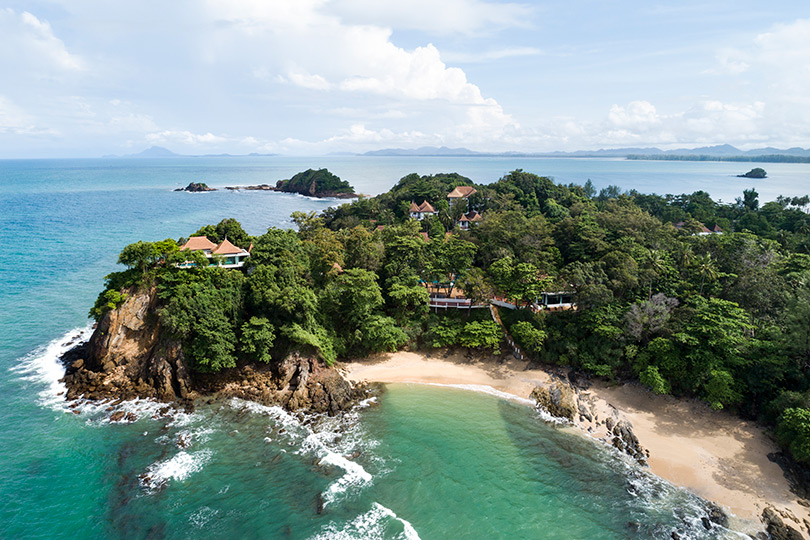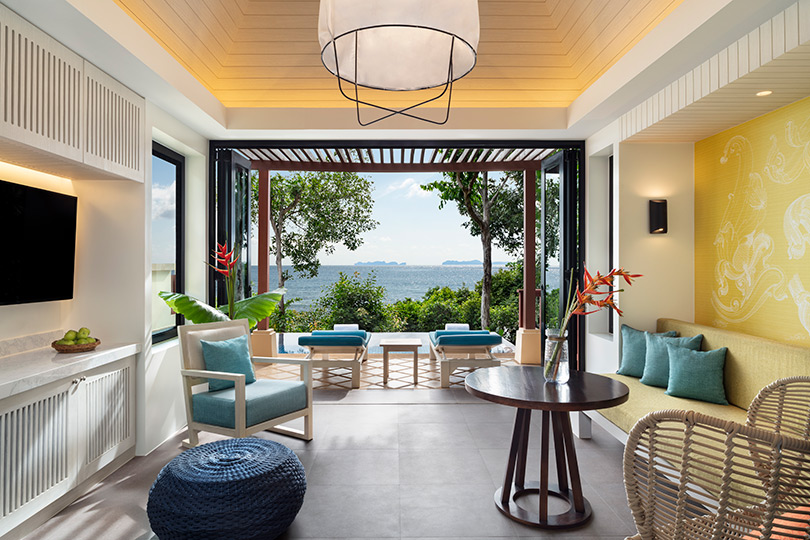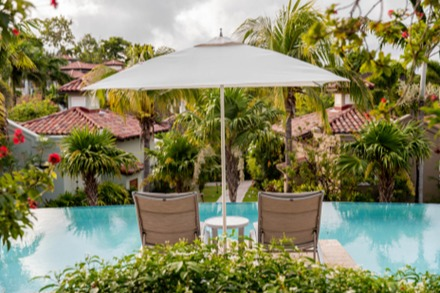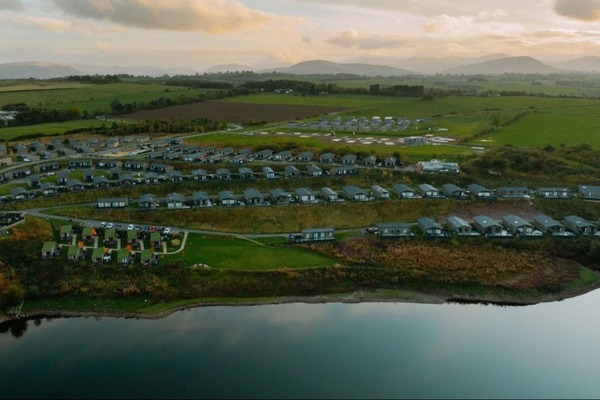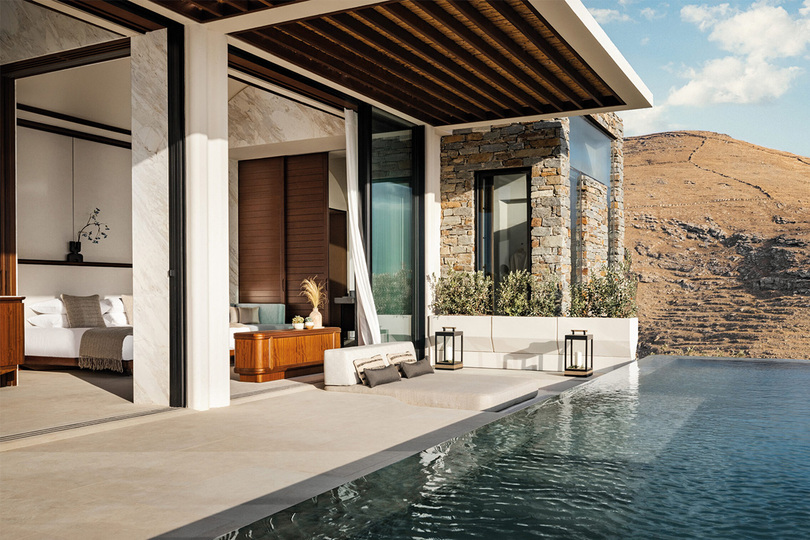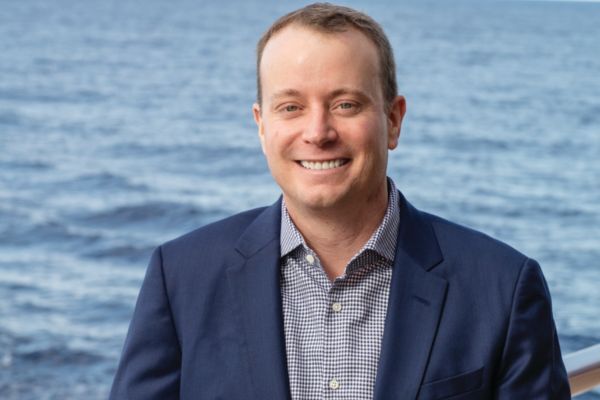“Agents can help encourage and organise”
Agents will have an ever-increasing role to play in travellers’ lives, says Michael Marshall, chief commercial officer of Minor Hotels, as the company celebrates the 10th anniversary of its Avani brand.
Travel advisors should remember what a positive role they play in the recovery of travel, even as they face more current uncertainty.
And according to Michael Marshall, chief commercial officer of Minor Hotels, whose luxury brands include Anantara, agents have a bigger role to play than ever before.
“Not only is their advice when it comes to the nature of travel these days invaluable, people will also be looking to them more for advice on how to truly make the most of the trip,” Marshall says. “We are definitely seeing longer stays at our hotels and a desire for even deeper, memorable local experiences, all of which the agent can help encourage and organise.”
Higher demand for “dining by design experiences”, as well as more spend on wellness are other trends noted by Marshall, who adds that travellers can also feel reassured by the hotel group’s own policy on vaccinations for its hospitality staff as a priority.
In the toughest of periods, Minor has continued to open new hotels, especially under one of its newest brands, Avani, which over the last couple of years has also evolved to include Avani+, an option that increasingly seems to be appealing to both guests and hotel developers.
Currently celebrating its 10th anniversary, Avani is in fact Minor’s fastest growing hotel brand.
It started life in Sri Lanka with Avani Bentota, which was designed by the legendary architect Geoffrey Bawa, and the brand has gone on to launch many other chic and contemporary openings, now numbering 35 hotels in 18 destinations globally.
“The idea for Avani was to create a brand that added to the Anantara concept of luxury hotels but would sit more in the upscale to upper upscale segment,” explains Marshall. “Avani hotels tend to be contemporary, appeal to a younger audience and families, and offer service that is warm and intuitive, but not obtrusive; locations can be in either cities or resorts.”
They have certainly been opening at pace in both kinds of destinations: in 2016, the first purpose-built property for the brand was the Avani Riverside Bangkok, which remains a flagship, and in 2017, the brand arrived in Europe with Avani Lisbon in Portugal. Among some of the most charming locations is FCC Angkor by Avani in Cambodia’s cultural capital of Siem Reap.
The Avani+ evolution is driven by a selection of hotels and resorts that “showcase the next level in style, design and facilities positioned for the upper-upscale market”, Marshall adds.
It currently runs at six properties with four more in the pipeline. The first was Avani+ Luang Prabang, which opened in Laos in 2018, and since then, the collection has expanded to include Bangkok, Hua Hin, Koh Samui and Koh Lanta.
Imminent openings for the brand include the first in the Maldives, coming this May. The Avani+ Fares Maldives Resort is a new-build on Fares Island in the Unesco-listed Baa Atoll and as well as its 200 villas, there will be an AvaniFit Gym developed with sports performance coach and Thai celebrity, Khun Mickey ANP.
Looking further head for Avani+ in the Indian Ocean, the Avani+ Seychelles Barbarons will be opening in 2023. The existing Avani resort is to get a full Avani+ makeover, with new restaurant options and a beach club, plus a new extension that will see a lagoon-style pool added, with lagoon-access rooms. The site will also see the introduction of Avani Beach Suites, with 192 guest rooms and suites.
Minor Hotels is headquartered in Thailand and the Avani+ portfolio there will be added to in 2022 as well.
Opening early in the year will be the 327-key Avani+ Khao Lak Resort, sitting in that quiet area north of Phuket famous for its long sandy beach and unspoilt Andaman Sea views. Meanwhile, Avani+ Koh Lanta will reopen in January as a nature retreat on the island with 92 rooms after a full redesign.
Also on the horizon in Asia for Avani+ in 2023 is Avani+ Ho Tram, Vietnam and Avani Kota Kinabalu Hotel, Malaysia.
But Marshall hopes it will be people’s passports that start to open more often in Asia too, not just hotels.
“For 2022, I would love to see the wider reopening of Asia, and more international travellers coming back, as it feels as if we are still lagging behind when it comes to lifting of restrictions here,” he says.
Despite the challenges of 2021, the group also managed to launch Avani Palm View Dubai; Avani Seminyak Bali; and Avani+ Mai Khao Phuket Suites & Villas, with 70 suites and 30 pool villas.
The appetite for new hotels has definitely not slowed down, and the pipeline for the wider Avani brand sees 4,397 rooms in 14 hotels currently on the drawing board.
Demand is particularly active in the Middle East, Marshall adds, with many conversations taking place across the region, and demand still strong for current travel too. “Dubai in particular just keeps on growing, we have done well there this year – it really kept going through the pandemic,” Marshall says.
Avani Muscat Hotel will be the next country where the brand makes its debut in that region, opening early 2022 in Seeb, the heart of the capital’s westward growth, with 161 keys, in addition to 45 studios and a range of serviced apartments.
Among other Minor brands, highlights in the region for 2022 will include Anantara World Islands Dubai Resort, which opens in January and is being hailed as the first luxury resort on the World Islands archipelago, approximately 4km off the coast of Dubai.
It is the first hotel to open in the “South American continent” and sits on an island all of its own, with guests able to access it by boat in 15 minutes from the jetty at Anantara The Palm Dubai Resort.
Marshall says he would like to bring Avani to Europe when possible too, adding to the property in Lisbon. “There are lots of opportunities for us to develop Avani in Europe where awareness of it has really gone up, particularly in the last five years,” he says, adding that the power of NH Hotel Group – which Minor acquired in 2018 – provides additional leverage here.
International tourism to many African destinations may have stalled after only just managing to get going again, but Marshall claims he remains optimistic for that region too, where the group has many hotels under its various brands.
“Of course there have been cancellations and challenges, but borders are open and there has also been intra-regional travel – South Africans might still travel to Mozambique for example, to hotels such as Avani Victoria Falls Resort,” he says.

